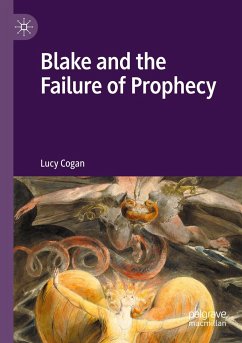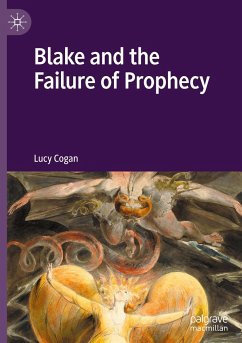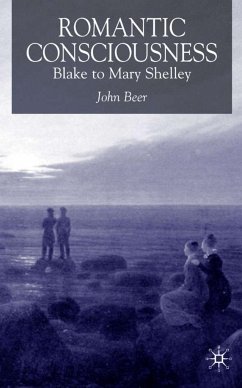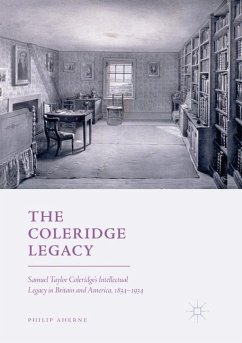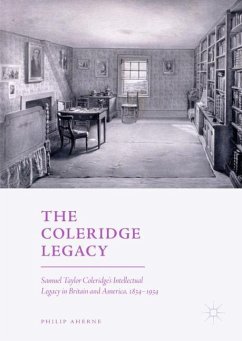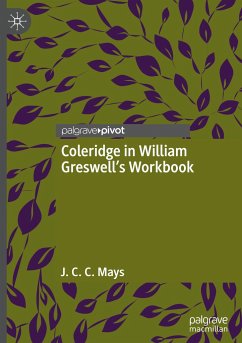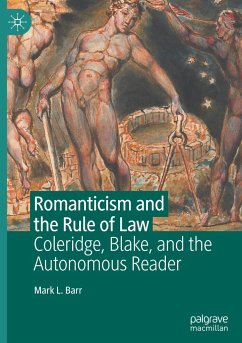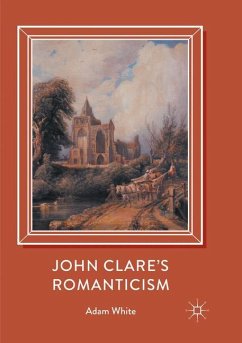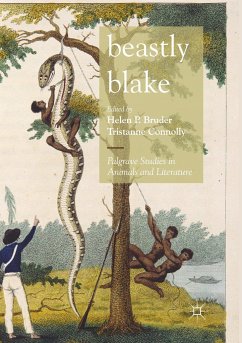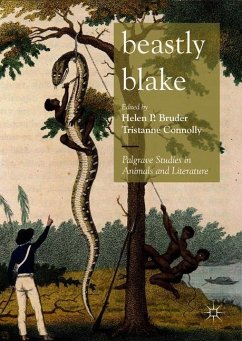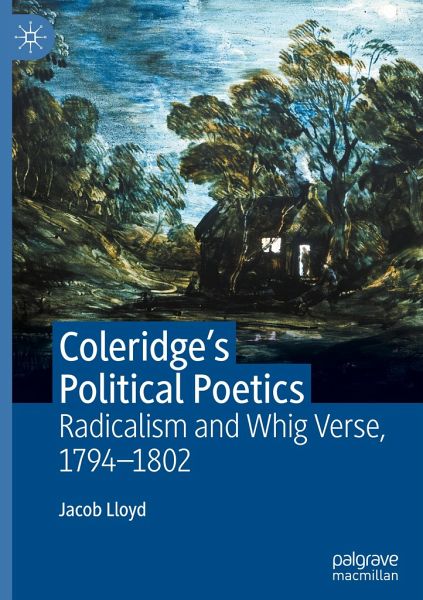
Coleridge's Political Poetics
Radicalism and Whig Verse 1794 - 1802
Versandkostenfrei!
Versandfertig in 6-10 Tagen
91,99 €
inkl. MwSt.
Weitere Ausgaben:

PAYBACK Punkte
46 °P sammeln!
This book considers Samuel Taylor Coleridge's engagement with 'Whig poetry': a tradition of verse from the eighteenth century which celebrated the political and constitutional arrangements of Britain as guaranteeing liberty. It argues that, during the 1790s, Coleridge was able to articulate radical ideas under the cover of widely accepted principles through his references to this poetry. He positioned his poetry within a mainstream discourse, even as he favoured radical social change. Jacob Lloyd argues that the poets Mark Akenside, William Lisle Bowles, and William Cowper each provided Coleri...
This book considers Samuel Taylor Coleridge's engagement with 'Whig poetry': a tradition of verse from the eighteenth century which celebrated the political and constitutional arrangements of Britain as guaranteeing liberty. It argues that, during the 1790s, Coleridge was able to articulate radical ideas under the cover of widely accepted principles through his references to this poetry. He positioned his poetry within a mainstream discourse, even as he favoured radical social change. Jacob Lloyd argues that the poets Mark Akenside, William Lisle Bowles, and William Cowper each provided Coleridge with a kind of Whig poetics to which he responded. When these references are understood, much of Coleridge's work which seems purely personal or imaginative gains a political dimension. In addition, Lloyd reassess Coleridge's relationship with Thomas Percy's Reliques of Ancient English Poetry, to provide an original, political reading of 'The Rime of the Ancyent Marinere'. This book revises our understanding of the political and poetic development of a major poet and, in doing so, provides a new model for the origins of British Romanticism more broadly



